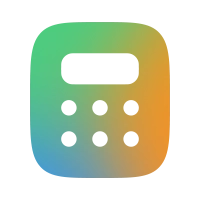The biggest buzzwords of the past year or so has been “virtual reality”, “augmented reality” and the most recent one being “metaverse”. I have been seeing numerous videos, articles and webinars by professionals about its potential. From Satya Nadella to my neighbour, everyone is talking about it.
Okay, let’s break this down:
What is this Metaverse?
The Metaverse is a digital space created by a user where they can socialize and interact with people who are similar to them. That’s what Google says. The term metaverse is derived from the Greek word ‘meta’ which means ‘beyond’ and ‘universe’. It describes any virtual world which is created by the users themselves. A few examples of the places available in the metaverse include Second Life and the Open Sim platform etc.
Still pretty complex. It’s actually a future already. Virtual reality, augmented reality, and artificial intelligence are all going to play a major role in the way HR functions in the years ahead. A number of companies are already taking advantage of this technology and are using it for various purposes such as training simulations, virtual meeting rooms for remote team members, and employee productivity tools.
Okay now let’s move towards the main point of this blog. I’ll go over some ways that metaverse can impact HR.
Increased Productivity
Metaverse is a collaborative environment that allows people to work together. This means you can collaborate on projects with remote colleagues and co-workers, which increases productivity because you’re able to be more productive when working from anywhere.
You may have even noticed that the majority of your daily tasks are done on the fly—you don’t always have time for lunch or breakroom chats (or even coffee). But with metaverse technology in place, these types of interactions would be possible without interruptions or distractions.
Better Workforce Retention
Employees can work together in real time and across multiple locations, which means that they can stay connected to each other even when they’re not physically present in the office. This helps them collaborate more efficiently on projects and share ideas with others. It also gives employees greater flexibility in how they manage their time, allowing them to work remotely or on flexible schedules (if necessary).
The best part about being able to communicate this way? It makes you feel like your colleagues are part of your team rather than just people who happen to be available when needed—which makes those times when we lose touch even harder!
Provide collaborative environment
If you’re already a fan of the metaverse and understand it, you probably already know how it is to be able to take collaboration to a whole new level. It can revolutionize the way human resources works for e.g., the work of screening job candidates. By making employers get up close and personal with prospective employees, VR may finally level the playing field for people with disabilities. And by making it easier for companies to bring on a diversified workforce, it may lead to more creativity in the corporate world. Plus, it’s just plain fun!
Let’s be honest: embracing new technology can be hard to swallow for some die-hard luddites out there. But when it comes to things like VR, the metaverse and HR, it’s time to start thinking about the future. And with those points, I hope that I was able to give you some food for thought and a small idea on the metaverse and its possible future impact on HR which might one day in future take us from a flat zoom meeting to a 3D virtual office.
























